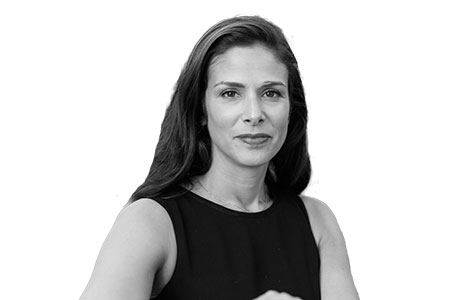Loading component...
At a glance
- Trust can be hard to win, easy to lose and painstaking to regain, but current economic and social conditions create a perfect storm for its overall decline.
- Earning business trust comes from a blend of capability, character, delivering on commitments and ensuring that those commitments are relevant to the core business.
- When trust is lost or put at risk, honesty should be the first response, followed by going above and beyond to repair the damage.
When nobel prize winning economist Milton Friedman penned his influential essay, The Social Responsibility of Business is to Increase its Profits, he included a vital caveat that many leaders can appear to overlook.
Executives are generally directed to seek to make as much money as possible, wrote Friedman, “while conforming to the basic rules of the society, both those embodied in law and those embodied in ethical custom”.
More than five decades have passed since the publication of Friedman’s doctrine, and history shows that ethics can be a murky concept across the corporate landscape. Despite an abundance of regulations, guidelines and frameworks that govern ethical business practices, improper behaviour still slips through the cracks.
From high-profile confidentiality leaks in professional services to investigations into allegations of price gouging by major supermarkets, widescale data breaches and allegations of greenwashing and sexual harassment across multiple sectors, it is little wonder consumers can lose trust in organisations.
But trust is a prized commodity that few can afford to lose. Research from Deloitte shows that trusted companies outperform their peers by up to 400 per cent, and that customers who trust a brand are 88 per cent more likely to buy from it again. The research also shows that almost 80 per cent of employees who trust their employer feel more motivated at work.
Trust can be hard to win, easy to lose and painstaking to regain. With current economic and social conditions creating a perfect storm for its decline, is there a winning formula for maintaining trust in 2025?
When trust is at risk
Karthik Ramanna, professor of business and public policy at the University of Oxford’s Blavatnik School of Government and author of The Age of Outrage, says three key factors put trust at risk in 2025. The first is what he describes as a “fear of the future”.
“The technological disruption of artificial intelligence (AI) promises to be at least as disruptive, if not more, as social changes brought by the industrial revolution,” he says. “Add to that concerns around climate change and shifting demographics, particularly in the Western world.
When people look ahead to the next few years, they realise it’s going to look very different from the world we’ve become used to.”
A second factor in declining trust, says Ramanna, is that some people feel they’re getting a “raw deal”.
“If we have fear of the future, but we have deep trust in our leaders, government institutions and business institutions, perhaps people wouldn’t be as anxious and outraged as they are,” he says. “But in many societies, and again particularly in Western societies, people feel that they’ve been handed a raw deal by their leaders and their institutions.”
The third factor for declining trust is a polarising sense of “us versus them”.
“There is a growing sense of ‘othering’ and less of the tolerance and willingness to see a lack of trust as a global humanist project. Through the pursuit of Enlightenment principles we might somehow be able to resolve problems,” says Ramanna.
Earning trust

Trust may be easy to lose, but how is it earned? Rachel Botsman, a leading trust expert and author of How to Trust and Be Trusted, says earning trust comes through a balance of capability, such as the quality of products or services, and character, which comprises qualities like integrity and compassion.
“The weight of that balance is changing,” says Botsman. “In the past, businesses could be very capable in their products and services and their brands would be strong, but now it’s the character of those organisations and those leaders that is in question, largely because of the current visibility into the way that they work and the way products and services are sold.
“I think integrity has become the most important trait for organisations. Trust really breaks down when people no longer believe that the interests of that organisation or that leader are aligned with their best interests. That’s where you get the friction and that’s where many organisations run into trouble.”
"In the past, businesses could be very capable in their products and services and their brands would be strong, but now it’s the character of those organisations and those leaders that is in question, largely because of the current visibility into the way that they work and the way products and services are sold."
Ramanna adds that earning trust requires making commitments that companies can deliver on and ensuring that those commitments align to the core business.
“If you are an oil company, for example, then what really matters to customers is the climate,” he says. “If you have no strategy on dealing with the climate, and instead your social engagement is on ancillary things, then people will look at this and say, ‘Oh, that’s just some sort of greenwashing’.”
Keeping the faith
When trust is put at risk or lost, how can leaders fix the problem?

Nino Tesoriero, chief counsel at Ogilvy PR, which specialises in crisis communications, says honesty is always the best policy.
“The most important thing is to be 100 per cent honest in where you’ve gone wrong and acknowledge it,” he says. “I often find that that’s the hardest part; leaders often don’t see what the perception is of their business. When there is a perceived break in trust, they need to try to see what it looks like from the outside.
If you’re going to restore trust and learn how you ended up in this position, you need to understand how other people see you.”
Rebuilding trust often depends on how it was lost, says Botsman.
“It’s often easier to regain trust if the problem is on the capability side,” she says. “If there is a product flaw, for example, procedures can be changed to ensure it doesn’t happen again. But if you look at most trust crises, they tend to sit on the character side.
“It is usually a behaviour problem, where someone has made a decision based on incentives or for their own personal gain,” says Botsman. “When trust is damaged in this way, it is very hard to recover from, and the mistake most organisations make is to blame it on a capability problem.
They might blame an algorithm, for example.”
"What can you do as a business to demonstrate that you really care about the damage that has been done through the erosion of trust? How can you go one step further to become an exemplary business and raise the standards for everyone?"
Tesoriero agrees. “The pitfall is that when organisations encounter a serious issue or a crisis, they’re not always focused on unravelling what the problem was to ensure that it never happens again.”
When leaders acknowledge how trust was lost, Tesoriero says they must clearly explain how they will fix the problem.
“You can’t just restore things to how they were,” he says. “You need to go above and beyond. What can you do as a business to demonstrate that you really care about the damage that has been done through the erosion of trust? How can you go one step further to become an exemplary business and raise the standards for everyone?”
While trust can be lost overnight, Ramanna says it must be rebuilt in increments.
“The most effective way to build trust is to do something that improves the situation, and that often means starting small, being humble, delivering something demonstrable and then using that as leverage for the next thing you can deliver,” he says.
“Time and again, when we study organisations that have had to rebuild trust after a disaster or crisis of their own making, it has involved being incremental, modest and humble about the process.”
Ethics for accountants
Few can avoid ethical quandaries. In the accounting profession, for example, APES 110 Code of Ethics for Professional Accountants outlines the fundamental principles of ethics and establishes the standard of behaviour that is expected. However grey areas can still emerge and the best course of action may not always be clear.
“Accountants have the five fundamental principles of ethics outlined in APES 110, but when you’re trying to apply them to the nuances of a dilemma, grey areas can arise,” says Belinda Zohrab-McConnell, regulatory and standards lead at CPA Australia.
“Accountants have to utilise their professional judgement constantly. If anything gives you pause to think — it’s probably for good reason. Behaving in a collegial way by running an ethical dilemma past somebody who is also familiar with your ethical obligations can be very helpful.”
The fundamental principles outlined in APES 110 are:
- Integrity: Conduct all professional and business relationships in an honest and straightforward manner.
- Objectivity: Exercise professional judgement without being compromised by influence, bias or conflicts of interest.
- Professional competence and due care: Attain and maintain a required level of professional knowledge and skill to ensure that clients receive competent professional service based on current technical and professional standards and relevant legislation.
- Confidentiality: Respect the privacy of information gained through professional relationships.
- Professional behaviour: Comply with relevant laws and regulations, behave in a manner that promotes public interest in all professional activities and relationships, and avoid conduct that may discredit the accounting profession.
How to measure trust

Trust is a valuable asset, so how can it be measured with rigour and how should businesses monitor its progress?
Some companies, such as RepTrak, publish reports on the reputation of large companies, based on consumer surveys and media coverage. This can help them to understand public perceptions of their brand and the extent of public trust. For smaller businesses, Nino Tesoriero, chief counsel at Ogilvy PR, advises exploring customer perceptions more directly.
“Customer surveys that specifically delve into the issue of trust are very helpful,” he says. “They should look at what’s working well and what you could do better. If you’re not talking to customers about this today, you won’t really understand their level of trust in your business. This is a good way of measuring and monitoring trust.”
Tesoriero adds that internal surveys are also a valuable way of gauging trust.
“Your employees are your most important ambassadors and advocates, and if they don’t believe and trust the values of the leadership and the organisation, then your customers won’t either,” he says.
“Start with your employees, your stakeholders, your partners. Find out how they feel about you, and then ask your customers as well. From there, you can make an assessment about where you need to improve or where you’re doing well.”

